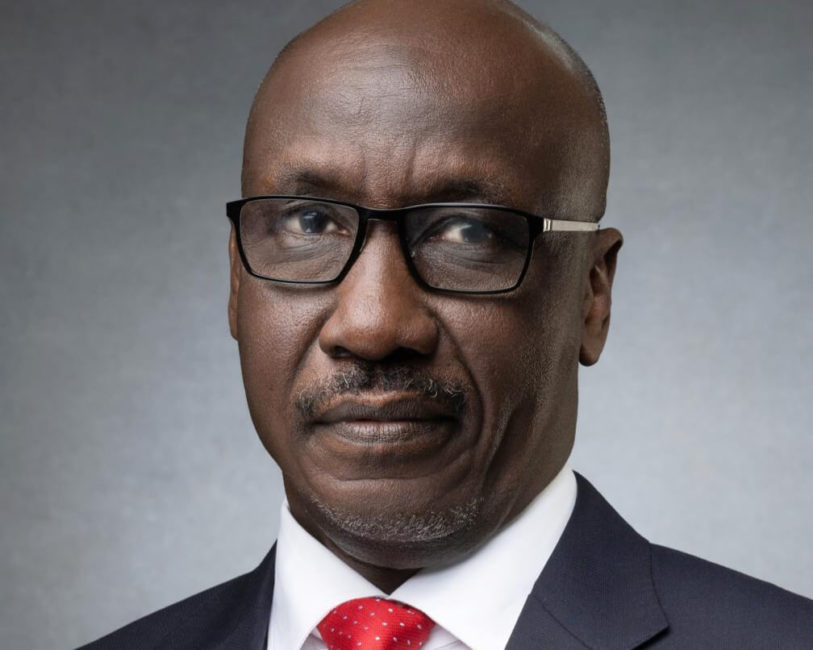We Will Maximize Gas Usage To Power Industries, Create Jobs, Says NNPC Ltd.
The Nigerian National Petroleum Company Ltd. has said that a just energy transition using gas as a cleaner fuel will help the country power industries that will create jobs and in turn reduce insecurity.
The NNPC Chief Financial Officer, Umar Ajiya who spoke for the Group Chief Executive Officer of the Company, Mele Kyari made the position while presenting a goodwill message during a ‘National Dialogue on Energy Transition’ on Thursday.
Advertisement
The programme was organized by the Nigeria Extractive Industries Transparency Initiative.
The GCEO’s comment follows pressure for Nigeria and other African countries to dump its hydrocarbon deposits for renewables.
But Kyari said the continent has little access to capital for transition by 2060.
Nigeria’s Vice President, Yemi Osinbajo launched the energy transition plan which estimates $410bn to deliver the plan.
Advertisement
Yearly, Nigeria is expected to spend $10bn to deliver the transition plan.
The NNPC GCEO last month in New York said Nigeria is looking for opportunities to leverage on the enormous gas resources in the country to provide the possibility that is required for the energy transition.
The NNPC Ltd is embarking on massive infrastructure to deliver the Morocco gas pipeline, which is aimed at delivering gas to Morocco and 13 ECOWAS Countries and Europe.
The NNPC is also working on the Ajaokuta-Kaduna-Kano (AKK) pipeline, a 614km-long natural gas pipeline being developed to deliver gas to industrial packs across the country.
The NNPC boss said, “It is a fact that we have abundance of natural resources in Nigeria and in Africa. It is also a fact that we are energy deficient in Africa. It is also a fact that the climate change is real. But one fact also remains that Africa has little or no access to capital to develop its natural resources.
Advertisement
“Nigeria has agreed on a target net zero emission by 2060. When there is a transition that transition has to be seamless and to be done in a transparent and accountable manner that ensures fair and equitable sharing of risk. We are having a significant share of risk in Africa but the reward is very little. So, that is the reality. We have committed ourself to be more transparent and accountable.
“It is our intention that we will maximize the use of gas to power industries and add value through creating job opportunities and thereby reduce poverty and when we reduce poverty, we reduce insecurity.”
Also speaking at the event, Mohammed Bello, the Chairman of the Revenue Mobilization, Allocation and Fiscal Commission, said Nigeria and other African countries are unjustly forced to transition alongside net emitters.
Africa emits only 3.8 per cent compared to 23 per cent in China, 19 per cent in the US and 13 per cent in the European Union.
At least 640 million Africans are suffering from energy poverty, according to the International Energy Agency (IEA).
Bello said Nigeria’s adoption of 2060 as a transition date and launching a roadmap shows its commitment to the COP26 agreement.
Advertisement
But he said Nigeria and Africa needs to utilize their hydrocarbon resources to solve energy poverty and raise capital needed for it transition.
He said, “Nigeria is taking a lead in Africa to be able to set good policy framework so that there will be smooth transition to cleaner energy. In the long run, the objective is to switch to the renewable energy. Africa is so vast with sunshine there by providing many opportunities in terms of investments in the sector.
“In the long run, the 645 million Africans and the low energy consumption, the low electricity rate if we get it this right eventually translate into job creation, more revenue, better health for citizens, better climate and better environment.
“Nigerian and Africans will not have to travel all across the world for services that requires energy. We still have a society where people largely die from lack of energy, whether it is in the hospitals and health crisis in the rural area. This is the reality of our situation. I believe that Africa of today has experts almost in every field.”



